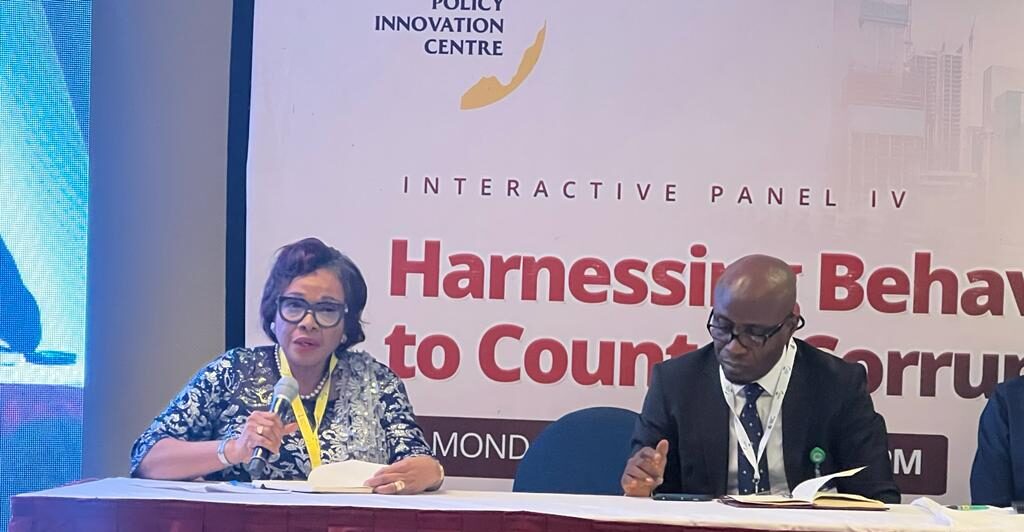The Independent Corrupt Practices and Other Related Offences Commission (ICPC) has stated that the National Ethics and Integrity Policy (NEIP), developed and approved by government in 2020, is meant to restore the values of the society that are being eroded.
The Commission stated this through its board member, Mrs. Olubukola Balogun, at the on-going National Economic Summit being organized by the National Economic Summit Group at an interactive panel discussion on “Harnessing Behavioural Insights to Counter Corruption” anchored by Policy Innovation Centre (PIC).
Mrs. Balogun stated that in tackling corruption, government is looking at other areas other than Law and Order, and focusing of the society, not just sanctions and systems. “There are sanctions and systems, but everything has to be driven by the society. It is the society that will make the two work, so we want to work with the society”.
According to her, the need to work with the society led to the development of the National Ethics and Integrity Policy (NEIP) which the Commission is taking round the country.
Recounting its achievements, she stated that the Commission has had about 43 meetings with traditional rulers, religious leaders, youth and women groups and has taken the message to the 6 geo-political zones and to 21 states, during which it advocates that every segment of the society should “come back to the drawing board and get our values right in the society”.
“All the behaviours that are unethical, let us leave it. It is for our common good. It will help us so that we can have shared prosperity and everybody everywhere, we can all do it right and get it right. We need to come back. “
Speaking on the NEIP’s 7 core values of Human Dignity, Voice & Participation, Patriotism, Personal Responsibility, Integrity, National Unity and Professionalism, she stated that, “these values have helped us in the past and somewhere along the line, we missed it.”
Earlier, at the panel discussion, the board member highlighted different aspects of the Commission’s duties as enforcement of sanctions, corruption prevention through systems study & review, corruption risk assessment and the Ethics and Integrity Compliance Scorecard on MDAs, as well as education and public enlightenment.
She noted that the National Ethics and Integrity Policy, though new and being unfolded, is working towards changing mindsets and behaviours.

